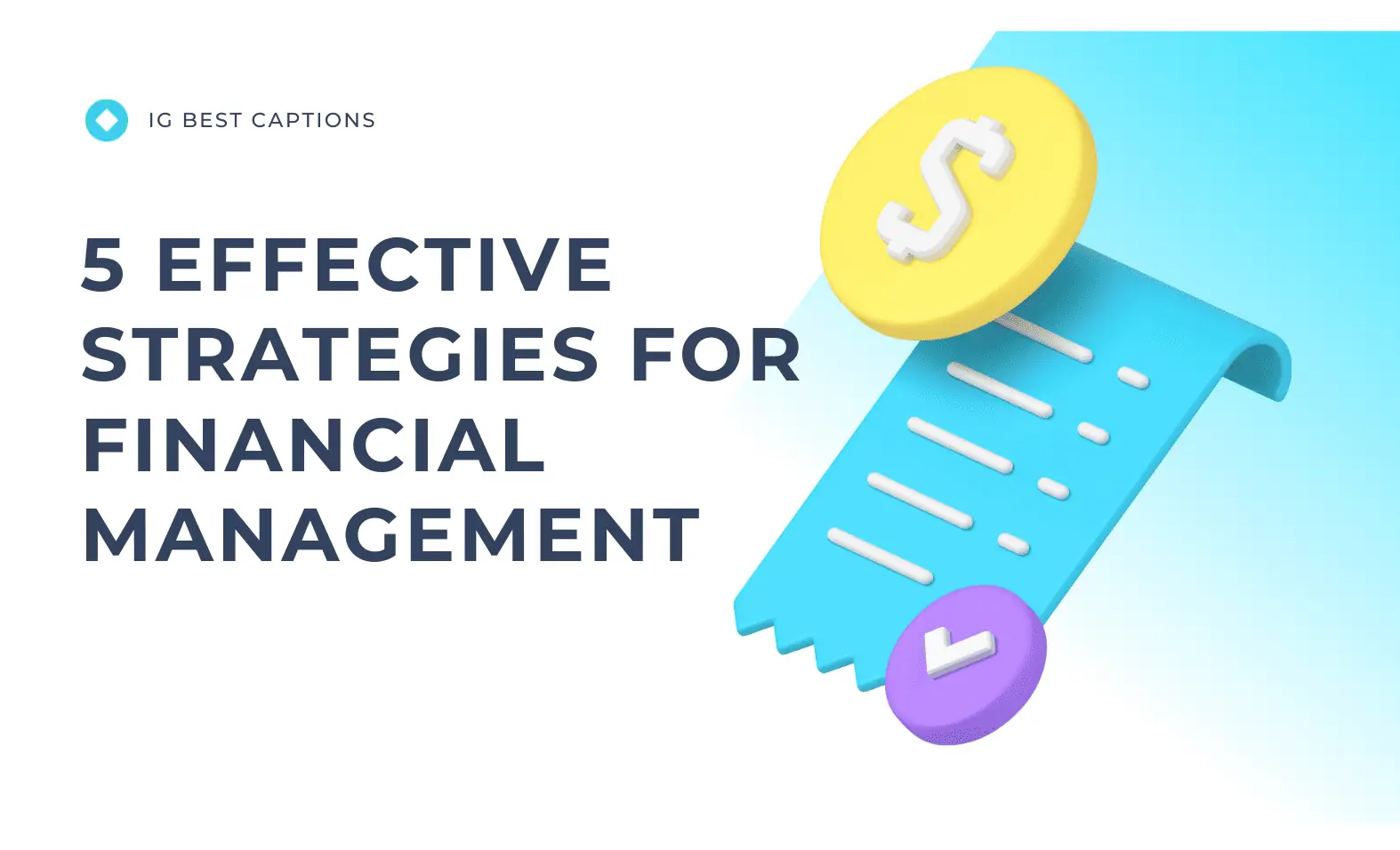5 Effective Strategies for Financial Management
Financial management is a fundamental aspect of one’s life. Effectively managing your money ensures that your bills are paid and can lead to financial security and peace of mind. This article will explore five simple yet powerful strategies on how to manage your money efficiently. Create a Realistic Budget A budget is the cornerstone of...
Felicity Chance
November 8, 2023
CONTENTS
Financial management is a fundamental aspect of one’s life. Effectively managing your money ensures that your bills are paid and can lead to financial security and peace of mind. This article will explore five simple yet powerful strategies on how to manage your money efficiently.
Create a Realistic Budget
A budget is the cornerstone of sound financial management. It lets you plan your spending, allocate funds for essentials, and set aside savings. Start by listing your sources of income and then detail your monthly expenses, including bills, groceries, transportation, and discretionary spending. The key is to be realistic and honest in your estimations. By creating a budget that aligns with your income, you can ensure your financial stability.
Track Your Spending
Once you have a budget in place, it’s essential to track your spending. This means keeping a record of every expense, no matter how small. Numerous apps and software can help you do this efficiently. By monitoring your spending habits, you can identify areas where you may overspend or find opportunities to cut costs. Tracking your expenses is an eye-opening exercise that can lead to more mindful spending.
Build an Emergency Fund
An emergency fund is your safety net for unexpected expenses. Life is full of surprises, and having funds for emergencies is crucial. Aim to save at least three to six months of living expenses. This money should be readily accessible in a savings or money market account. Having an emergency fund provides financial security and reduces the stress that unexpected events can bring.
Reduce and Manage Debt
Debt, particularly high-interest debt like credit cards, can significantly impede your financial stability and progress. The next strategy to tackle is minimizing and managing your debts as effectively as possible. Prioritize the repayment of high-interest debts promptly. Consider consolidation or balance transfers to lower-interest accounts if these options make financial sense. Above all, exercise caution in taking on new debts unless it is an absolute necessity. By successfully managing your existing debts and avoiding the accrual of more, you will free up your financial resources and advance towards your financial goals.
Invest for the Future
Investing your money is a fundamental strategy for securing your financial future. While investing might initially seem daunting, it doesn’t need to be overly complicated. Starting with a retirement account, such as a 401(k) or IRA, can be an excellent initial step. These accounts offer tax advantages and often involve automatic deductions from your paycheck. If your employer provides a retirement plan and matches your contributions, take full advantage of it. Consulting a financial advisor is a sound choice for exploring other investment possibilities. You can achieve financial independence and long-term security by incorporating investment into your financial plan.
SoFi states, “Money management means overseeing your personal finances, which can involve budgeting, tracking your spending, saving, and investing, among other tasks.”
Managing your finances effectively is an essential life skill that can pave the way for financial stability and long-term security. Constructing a practical budget, diligently tracking your spending, building an emergency fund, managing and reducing your debts, and investing for your future are straightforward yet powerful strategies to guide you along the right financial path. These principles empower you to regain control of your finances, diminish financial stress, and establish a firm foundation for a more secure and prosperous future.
More posts
5 Secrets to Succeeding in a Competitive Financial Environment
Among the most demanding and fast-paced industries of the modern economy is the financial one. From stock markets to fintech…

The New Innovative Metrics to Measure Social Media Success Beyond Likes and Shares
In the dynamic world of social media, where likes and shares no longer paint the full picture, we’ve gathered insights…

Advanced Targeting Strategies for Instagram Ads: Reaching Your Niche Audience
Instagram has evolved into a powerhouse for advertisers looking to connect with a diverse and engaged audience. However, as the…


